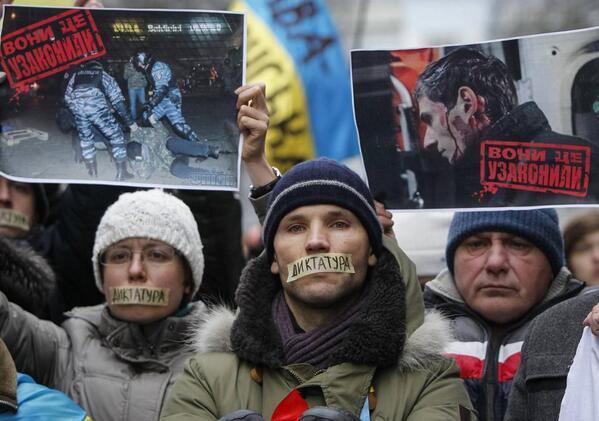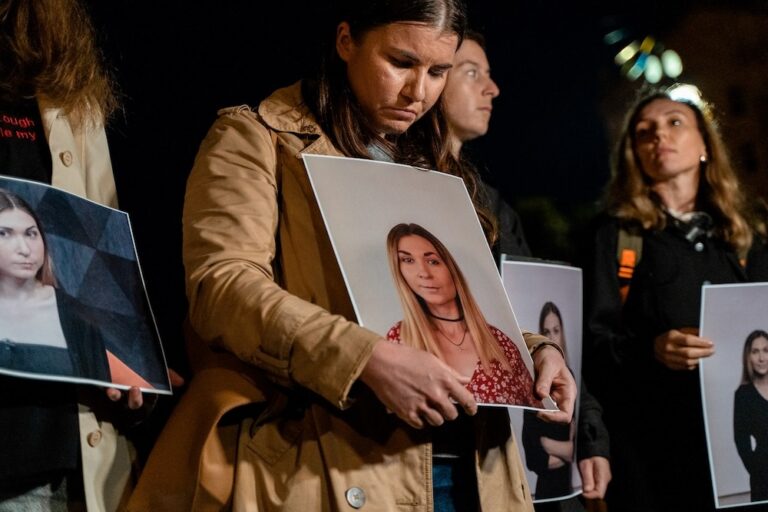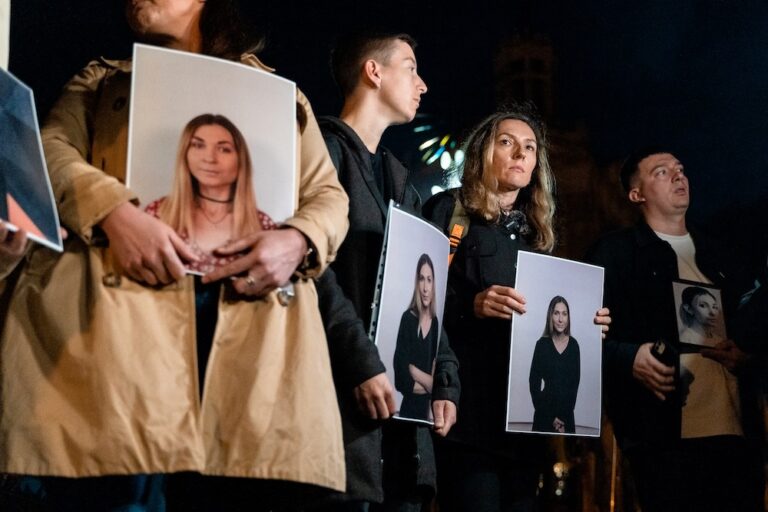Described by local civil society groups as the "legal establishment of dictatorship," Law 3879 cracks down on protests, access to information and digital rights.
In Ukraine, you could be jailed for wearing a helmet to a demonstration.
Not only that, but if you drove to said demonstration in a procession of five vehicles or more, you’d be at risk of having your driver’s license and vehicle confiscated for two years.
Unfortunately, this is no joke. Such seemingly petty actions – along with tens of others – have been officially restricted in Ukraine since 17 January 2014, when President Viktor Yanukovych signed Law 3879 “amending the law on the judicial apparatus and the status of judges and establishing additional measures to protect the safety of citizens.”
The draft bill was promulgated as swiftly as it was approved by Parliament. Vadym Kolesnichenko and Volodymyr Oliynyk – representatives of the leading Party of Regions – introduced Law 3879 on 14 January. It was approved on 16 January following “…a 10-second show of hands by loyal MPs, rather than the usual system of electronic voting, and without any prior public discussion,” according to Reporters Without Borders (RSF).
Many see the law as an attempt to quell the mass protests that began in November after President Yanukovych declined to sign a series of EU trade agreements. Often referred to as the Euro Maidan protests – a name derived from Kyvi’s central square, Maidan Nezalezhnosti – the demonstrations have continued on a weekly basis, with opposition groups occupying public buildings and setting up tent encampments in the square.
Under Law 3879, such forms of protest are criminalised. Described by local civil society groups like Chesno as the “legal establishment of dictatorship,” Law 3879 also cracks down on access to information and digital rights, which underpin many forms of free expression.
Defamation re-criminalised
Not every aspect of Law 3879 is new to Ukrainians. Criminal defamation, notes RSF, was merely roused from its thirteen-year slumber and reintroduced as article 151-1 to the criminal code. Under this latest enforcement, penalties for defamation can vary: if you defame someone online, you may be penalized with a fine “between 50 and 300 times the minimum wage.” More “aggravating circumstances”, however, could land you a two-year prison sentence.
“The return of defamation to the penal code constitutes a 13-year backward step for Ukraine,” RSF said in a statement. “Moving in the opposite direction to the worldwide trend, Ukraine is blatantly violating international agreements that is has signed, starting with the European Convention on Human Rights and the International Covenant on Civil and Political Rights.”
Illegalisation of news
According to Oksana Romaniuk, Executive Director for the Institute of Mass Information (IMI), Law 3879 requires “news agencies” – or any website that publishes news – to register with the state. Failure to do so, notes Romaniuk in an e-mail to IFEX, could result in the confiscation of equipment or a heavy fine. ARTICLE 19 adds that the law further authorizes the National Commission on Communications – made up of president-appointed members – to block any websites containing “illegal” information.
Suppression of demonstrations
The fear of committing a crime online under the new law may be terrifying for Ukrainian Internet users, but those who wish to express themselves offline will have to watch their backs – literally. The new law punishes those who disobey the “established procedure” for partaking in demonstrations, ARTICLE 19 says, while anyone who blocks an administrative building could be sentenced to five years in jail.
Restrictions on reporting
Other equally worrying provisions of the new legislation seem to be particularly targeted at journalists and human rights activists – especially those who expose the actions of people in power. In her e-mail to IFEX, Oksana Romaniuk states that people who collect information about police officers or judges could be sentenced to up to 3 years imprisonment. “Now, there is no hope for a free and fair life for anybody in Ukraine – and especially, for journalists who dare to criticize the people in power,” Romaniuk says. “Clearly, the legislation is aimed against the current mass Euro-protests in Ukraine, and against the Ukrainian media.”
Crackdown on “foreign agents”
But there’s one more group that this legislation aims to repress: non-governmental organisations. Following in Russia’s footsteps, Ukraine will now require any NGOs who receive money from abroad to register as “foreign agents,” according to IMI. Not only that, if a civil society organisation should want to participate in any “political activity,” they must first seek permission from the state. In a statement issued on 21 January, U.N. High Commissioner for Human Rights Navi Pillay condemned this move, noting that “such provisions will roll back the enjoyment of human rights for the people of Ukraine, stifle debate and dissent, and jeopardise the democratic achievements of the past two decades.”
Citizens object, violence ensues
Ukrainians have not taken the news of Law 3879 lightly. On the day of its promulgation, over 100 civil society organisations circulated a statement, urging Ukrainians to gather in protest at Independences square on 19 January. The result was a demonstration that attracted approximately 100,000 people – some wearing pots on their heads in lieu of helmets to protest the new law – which eventually erupted in violence. According to The New York Times, police fired water cannons at demonstrators gathered near the parliament building, while demonstrators attacked police with sticks and attempted to overturn a bus blocking the way to the parliament building. IMI reports that approximately 36 journalists have been injured while covering the demonstrations – a number that is updated regularly on their website.
In an e-mail to IFEX, the organisation urged the international community to speak out against new legislation and the associated violence:
“The Institute of Mass Information (Ukraine) calls on international organisations and IFEX members to pressure Ukrainian authorities, and to help defend democratic freedoms in Ukraine. A strong support is really necessary in these bad times.”
The International Press Institute (IPI), along with its affiliate, the South East Europe Media Organisation (SEEMO) has condemned the violence against journalists.
“We remind all parties involved that journalists are never legitimate targets and we demand that authorities hold accountable anyone found to be targeting journalists,” IPI Press Freedom Manager Barbara Trionfi said.
RSF has echoed these sentiments in its own statement, naming media personnel who have been the victims of these attacks. The organisation further provides a link to security information for journalists who would like to cover the situation in Ukraine.
“Clearly, the legislation is aimed against the current mass Euro-protests in Ukraine, and against the Ukrainian media.”Oksana Romaniuk, IMI
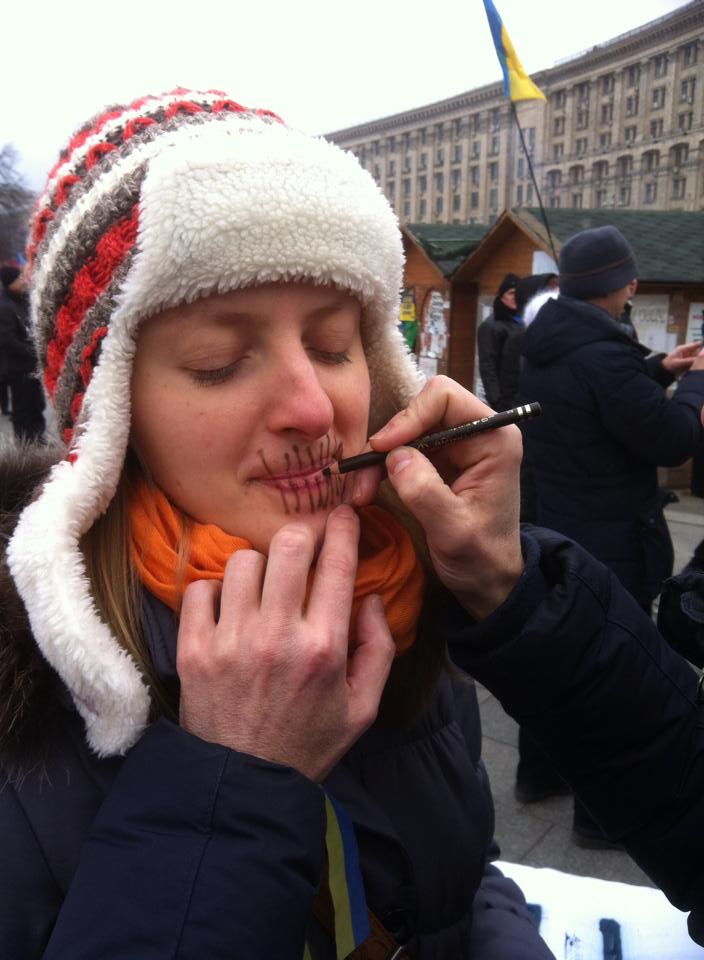
A protester prepares to demonstrate against Law 3879 on 17 January 2014.Civic Sector of Euromaidan
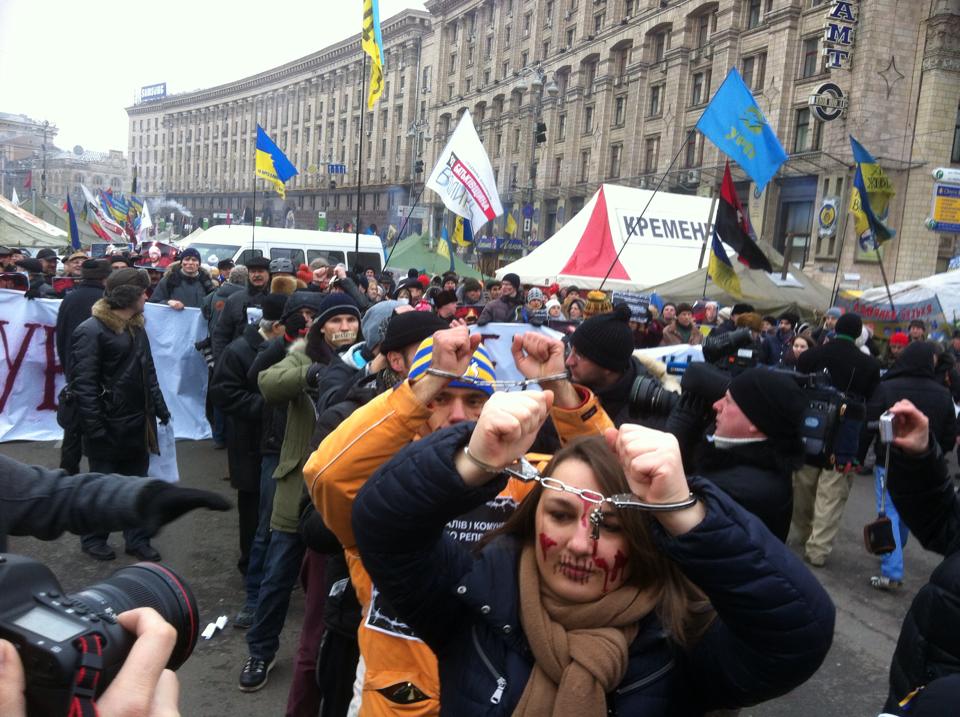
Demonstrators gather in Kyiv on 17 January 2014.Civic Sector of Euromaidan/Facebook
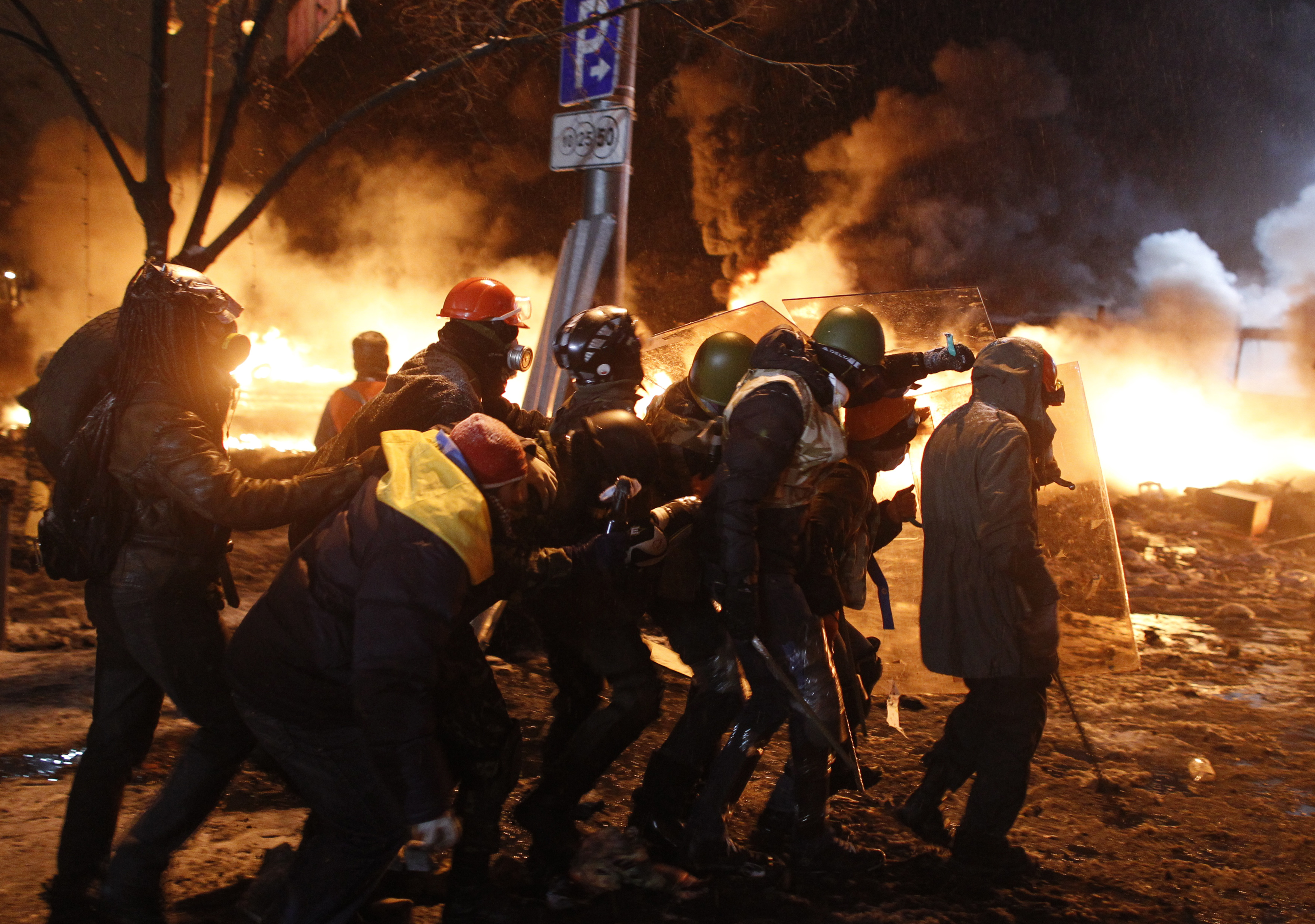
Pro-European protesters take cover behind shields during clashes with riot police in Kyiv, 22 January 2014.REUTERS/Vasily Fedosenko
